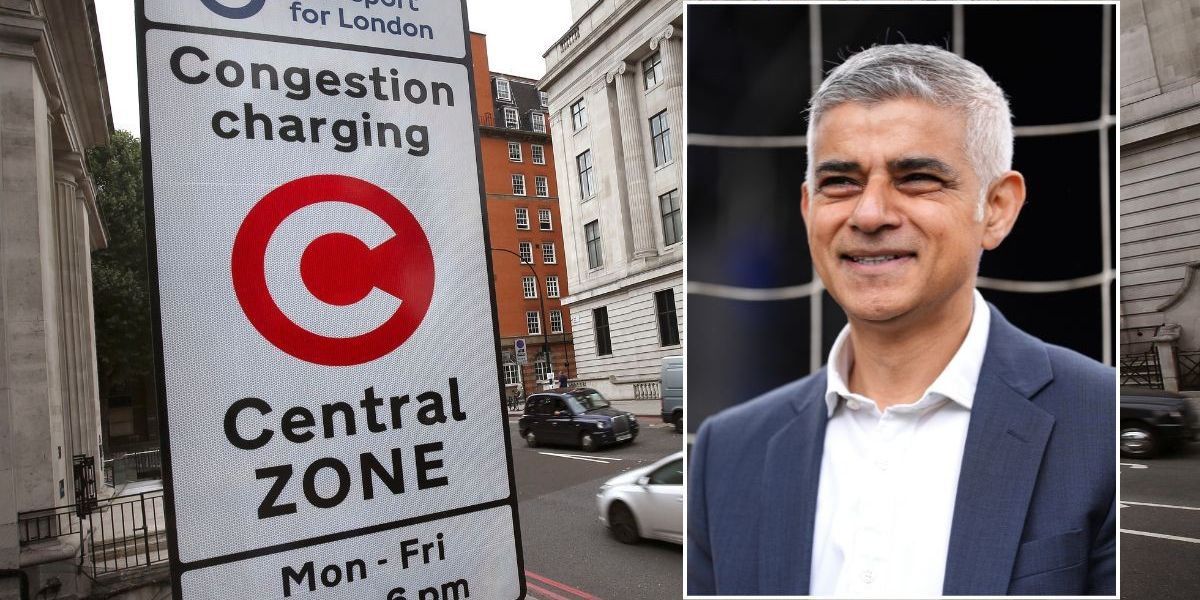London’s Congestion Charge: A Controversial Shift for Electric Vehicle Owners
As London continues to grapple with the dual challenges of congestion and air pollution, a significant policy change is on the horizon that has sparked considerable debate among residents and experts alike. Starting December 25, 2024, electric vehicles (EVs) will no longer enjoy a 100% exemption from the city’s Congestion Charge, a move that has drawn criticism from various quarters, including former Top Gear presenter Quentin Willson.
The Current Landscape of the Congestion Charge
The Congestion Charge is a fee imposed on vehicles driving within a designated area of central London, aimed at reducing traffic congestion and improving air quality. Currently, the charge applies from 7 am to 6 pm on weekdays and from 12 pm to 6 pm on weekends and bank holidays. Until now, electric vehicles have been able to register for a Cleaner Vehicle Discount, allowing them to bypass the £15 daily fee that applies to petrol and diesel vehicles. This incentive was part of a broader strategy to encourage the adoption of greener vehicles in the face of rising environmental concerns.
The Impending Change
The decision to end the exemption for electric vehicles has raised eyebrows and concerns among EV owners and advocates. Starting next Christmas, electric car drivers will face the same financial penalties as their petrol and diesel counterparts, effectively negating the incentives that have been in place to promote cleaner transportation options. This change comes at a time when the UK government is pushing for increased EV adoption as part of its commitment to reducing carbon emissions and combating climate change.
Voices of Dissent
Quentin Willson, a prominent car expert and advocate for electric vehicles, has taken a stand against this impending policy shift. In a letter addressed to London Mayor Sadiq Khan, Willson argued that while the Congestion Charge aims to reduce congestion, it is counterproductive to penalize vehicles that produce no harmful emissions. He emphasized that allowing more electric vehicles on the road, even if they are stuck in traffic, is preferable to having traditional combustion engine vehicles that contribute to air pollution.
Willson’s concerns echo those of many in the EV community, who fear that the removal of the exemption could hinder the progress made in EV adoption, particularly among private hire vehicles and commercial vans. He pointed out that the long-term public health benefits of maintaining the exemption far outweigh the immediate financial implications for the city.
Reactions from the Public and Experts
The announcement has not gone unnoticed by the public. Jack Cousens, the AA’s head of roads policy, expressed his disbelief at the timing of the decision, suggesting it feels like a "lump of coal" for EV drivers during the holiday season. He called on Mayor Khan to reconsider the decision, highlighting the irony of penalizing those who have already made the switch to greener vehicles in an effort to improve air quality.
Public sentiment has largely been negative, with many drivers expressing frustration over the perceived greed behind the decision. One disgruntled motorist remarked, “Do you know how ludicrous this sounds, paying for clean air? My solution is just don’t pay, then the problem will go away. It’s all about greed.”
The Official Stance
In defense of the decision, a spokesperson for Transport for London (TfL) stated that the move is part of a phased approach to reflect advancements in vehicle technology since the introduction of the Cleaner Vehicle Discount in 2019. They emphasized that the Congestion Charge is essential for managing traffic and congestion in central London and that the exemption’s end is necessary to maintain its effectiveness.
Conclusion: A Call for Reconsideration
As the deadline for the end of the EV exemption approaches, the debate surrounding the Congestion Charge intensifies. Advocates for electric vehicles, including industry experts and concerned citizens, are urging Mayor Khan to reconsider this decision, arguing that it undermines the city’s efforts to promote cleaner air and sustainable transportation. With the future of London’s air quality and traffic management hanging in the balance, the coming months will be crucial in determining the direction of the city’s environmental policies.
As the conversation continues, it remains to be seen whether the Mayor will heed the calls for change or maintain the course that many believe could set back the progress made in the fight against air pollution and climate change.
